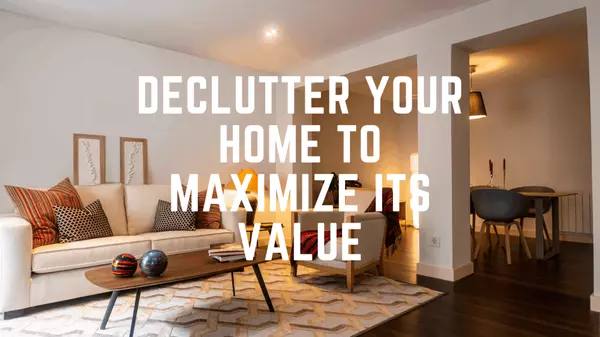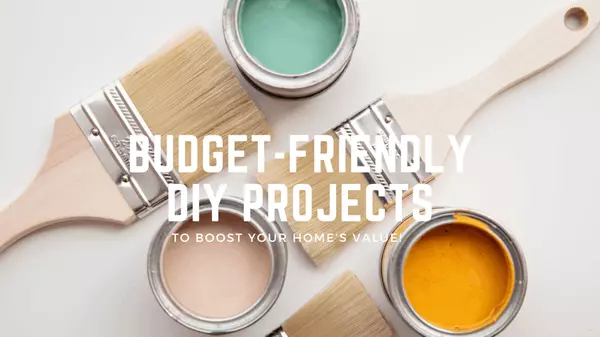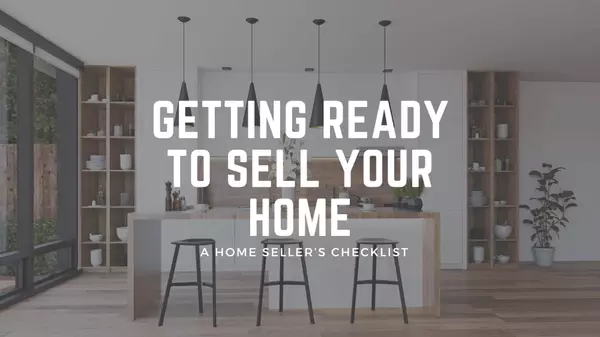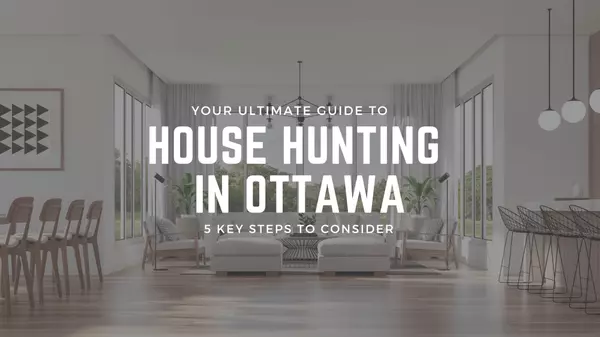Your Ultimate Guide to House Hunting in Ottawa: 5 Key Steps to Consider
If you're a home buyer in Ottawa, you're probably excited about finding your dream home in this diverse city. Whether you're a first-time home buyer or looking to upgrade, the process can seem overwhelming. However, by following a few strategic steps, you can streamline your house-hunting experience and make it much more enjoyable and efficient. Here are five essential steps to consider before house hunting in Ottawa.
1. Location, Location, Location
Ottawa real estate offers a variety of neighbourhoods, each with its own unique charm and amenities. The first step in your house-hunting journey should be to identify the location that best suits your lifestyle and needs.
Consider the following:
- School Zones: If you have children or are planning to, you'll want to be in a good school district. Ottawa has many excellent schools, so do some research to find the best ones.
- Proximity to Shops and Restaurants: Determine how close you want to be to local amenities. Do you prefer a bustling neighborhood with lots of dining options and shops, or a quieter, more residential area?
- Public Transportation: If you rely on public transit, look for homes near bus routes or light rail stations. Proximity to transit can make a big difference in your daily commute and the resale value of your home.
- Community Feel: Each neighbourhood in Ottawa has its own vibe. From trendy and hip spots like Hintonburg and The Glebe to family-friendly Westboro and suburban Kanata and Barrhaven, there is something for everyone. Spend some time visiting different areas to see where you feel most at home.
By narrowing down your preferred locations, you can focus your search and save time.
2. Determine the Ideal Lot Size
Lot size is an often overlooked aspect of house hunting, but it's crucial to consider how much outdoor space you need.
Here are some factors to think about:
- Proximity to Neighbors: Do you prefer a close-knit community where neighbours are nearby, or do you value privacy and space between homes?
- Yard Space: If you have children or pets, a larger yard might be a priority. Consider how much space you'll need for outdoor activities and whether you enjoy gardening or outdoor entertaining.
- Future Plans: Think about your long-term plans. If you're considering additions like a pool, playground, or garden, ensure the lot size can accommodate these features.
Balancing your need for space with the benefits of community can help you find the perfect lot size for your new home.
3. Consider the Home Size
When it comes to the interior of your future home, size matters.
Here are some questions to guide your decision:
- Number of Bedrooms and Bathrooms: Consider your current needs and future plans. If you’re planning to start a family or have frequent guests, you’ll need more bedrooms and bathrooms.
- Work from Home: With more people working remotely, having a dedicated office space is increasingly important. Make sure the home has enough space for a comfortable and productive work environment.
- Storage and Living Space: Think about the amount of storage you’ll need and whether the home has adequate closet space, a basement, or a garage. Additionally, consider the size of living areas like the kitchen and living room, especially if you enjoy hosting gatherings.
By clearly defining your space requirements, you can narrow down your options and focus on homes that will meet your needs now and in the future.
4. Assess the Need for Updates
Are you looking for a move-in ready home, or are you open to doing some renovations? Each option has its pros and cons:
- Turn-Key Property: These homes are ready for you to move in without any additional work. They are ideal if you want to avoid the hassle and expense of renovations.
- Fixer-Uppers: Buying a home that needs some work can be a great way to get more value for your money. Plus, you can personalize the space to your taste. However, be sure to budget for the necessary updates and be realistic about the time and effort involved.
Understanding your willingness to take on projects can help you decide whether a turnkey property or a fixer-upper is right for you.
5. Set a Realistic Budget
One of the most important steps in the home-buying process is setting a budget.
Here’s how to approach it:
- Pre-Approval: Start by getting pre-approved for a mortgage. This will give you an idea of how much you can borrow and help you set a price range for your search.
- Monthly Expenses: Consider your monthly expenses, including mortgage payments, property taxes, utilities, maintenance, and insurance. Make sure you’re comfortable with the total amount.
- Contingency Fund: Always have a contingency fund for unexpected expenses. Homeownership can come with surprises, and having a financial cushion can save you stress in the long run.
By being realistic about your budget, you can avoid overextending yourself financially and enjoy your new home with peace of mind.
Ready to Start Your Home Search in Ottawa?
House hunting in Ottawa can be an exciting and rewarding experience if you approach it with a clear plan. By considering location, lot size, home size, potential updates, and your budget, you'll be well on your way to finding your dream home.
If you’re ready to start your home-buying journey and need professional guidance, don’t hesitate to reach out. As a dedicated real estate agent in Ottawa, I’m here to help you navigate the market and find the perfect home.
Give me a call, and let’s chat about how we can make your home-buying experience smooth and successful.
Categories
Recent Posts





